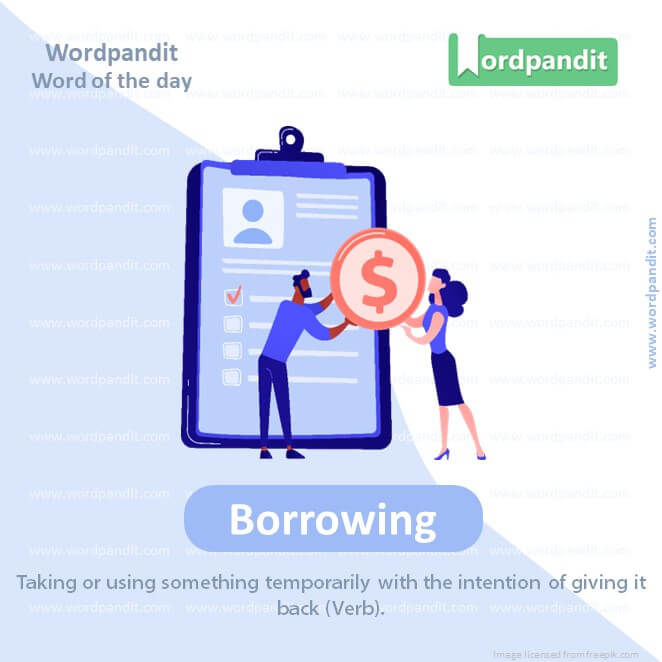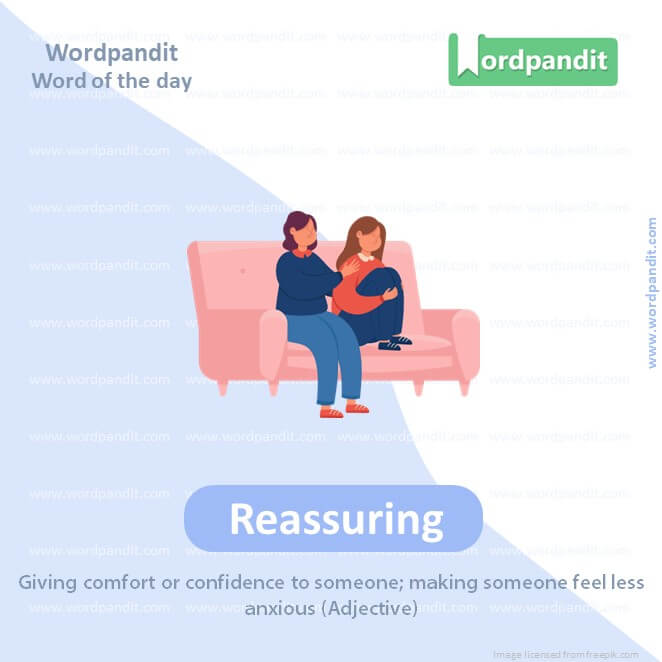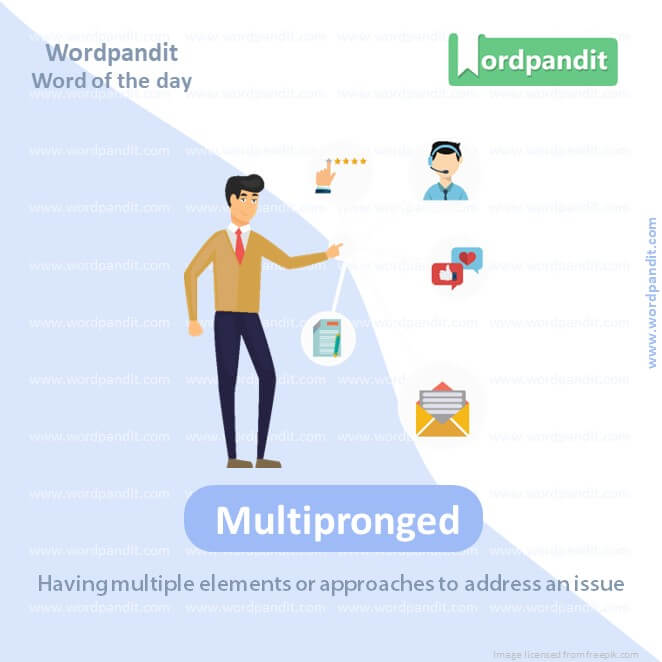Daily Vocabulary Words: List of Daily Used Words in Leading Indian Newspapers
Hi there. Welcome to this special section @ Wordpandit. Our endeavour here is straightforward: highlighting daily vocabulary words that you would come across in leading newspapers in the country. We have included the following newspapers in our selection:
• The Times of India
• The Economic Times
• Hindustan Times
• Mint
• Indian Express
We are putting in extensive work to develop your vocabulary. All you have to do is be regular with this section and check out this post daily. This is your repository of commonly used words; essentially, we are posting a list of daily used words. Hence, this has significant practical application as it teaches you words that are commonly used in leading publications mentioned above.
Visit the website daily to learn words from leading Indian newspapers.

WORD-1: Apex
CONTEXT: Two more terms were set by the apex court related to non-disclosure of related party transactions and the manipulation of stock prices in contravention of existing laws. In addition, a separate Expert Committee was formed to inter alia examine whether there has been a regulatory failure in dealing with the alleged contravention of laws by the Adani group.
SOURCE: The Hindu
EXPLANATORY PARAGRAPH: Imagine you’re building a pyramid with blocks. The very top block that you put on is the most special one because it’s the highest point of your pyramid. That top point is called the apex. In other words, apex means the very, very top or the best part of something!
MEANING: The highest point or the greatest part of something (noun).
PRONUNCIATION: AY-peks
SYNONYMS: Peak, summit, zenith, pinnacle, acme, crest, vertex
USAGE EXAMPLE:
1. The climber reached the apex of the mountain.
2. The movie reached its emotional apex during the final scene.
3. The apex of the pyramid was covered in gold.
4. She was at the apex of her career when she won the award.
WORD-2: Formalisation
CONTEXT: Another sharp trend is the growing evidence of formalisation of the economy and the growth of the middle class.
SOURCE: Hindustan Times
EXPLANATORY PARAGRAPH: Imagine you have a special way of playing with your toys, and you want all your friends to play the same way. Formalisation is like making a set of rules or steps that everyone agrees to follow when they play together. It helps make things organized and fair so everyone can have a good time!
MEANING: The process of turning something into a formal or official structure or set of rules. (Noun)
PRONUNCIATION: For-ma-li-za-tion
SYNONYMS: Standardization, Codification, Systematization, Regulation, Organization, Methodization, Structuring
USAGE EXAMPLES:
1. The formalisation of the new game rules made it easier for everyone to understand how to play.
2. The formalisation of the school dress code ensured that all students dressed appropriately.
3. The formalisation of the agreement was necessary to make it legally binding.
4. The formalisation of the process helped streamline the workflow and reduce confusion.
WORD-3: Stagnant
CONTEXT: Critical schemes like Saksham Anganwadi and Poshan 2.0 and PM POSHAN (earlier ICDS, mid-day meals), and old age pensions have faced the guillotine or remained stagnant.
SOURCE: Hindustan Times
EXPLANATORY PARAGRAPH: Think of a pond that doesn’t have any flowing water; it stays in one place without moving. Stagnant means something that is not changing or moving, just like that still pond. If your ideas or a project feel stagnant, it means they are not growing or progressing.
MEANING: Not changing or moving, often describing water that doesn’t flow. (Adjective)
PRONUNCIATION: Stag-nant
SYNONYMS: Inactive, Motionless, Stationary, Idle, Sluggish, Stale, Dormant
USAGE EXAMPLES:
1. The pond became stagnant because there was no fresh water flowing into it.
2. The team’s progress became stagnant when they couldn’t come up with any new ideas.
3. The stagnant air in the room made it feel stuffy and uncomfortable.
4. The economy showed signs of becoming stagnant as businesses struggled to grow.

WORD-4: Borrowing
CONTEXT: We saw episodes of this in the 2010-12 period when inflation reached double digits on the back of unbridled borrowing that reached 41% of the total government expense in the financial year 2009-10.
SOURCE: Hindustan Times
EXPLANATORY PARAGRAPH: Imagine you have a toy that your friend really likes, and you let them play with it for a while. Borrowing is like when you share things for a short time, like borrowing a book from the library or borrowing a friend’s crayons to use for a little bit.
MEANING: Taking or using something temporarily with the intention of giving it back (Verb).
PRONUNCIATION: Bor-row-ing
SYNONYMS: Lending, Taking, Using, Leasing, Loaning, Renting, Utilizing
USAGE EXAMPLES:
1. Sally was borrowing a dress from her friend for the special occasion.
2. The library allowed people to borrow books for two weeks at a time.
3. Can I borrow your pencil for a moment? I’ll give it back after I finish my drawing.
4. The teacher caught Tim borrowing ideas from his classmate’s homework.
WORD-5: Rectified
CONTEXT: this was rectified subsequently in a visible effort to improve macro-fiscal management.
SOURCE: Hindustan Times
EXPLANATORY PARAGRAPH: Picture a puzzle where a piece is put in the wrong place. Rectified means fixing or correcting things when they go wrong, just like putting that puzzle piece back in its proper spot. It’s like making sure everything is in the right order.
MEANING: Corrected or fixed to make things right. (Adjective)
PRONUNCIATION: Rec-ti-fied
SYNONYMS: Remedied, Resolved, Fixed, Amended, Improved, Adjusted, Repaired
USAGE EXAMPLES:
1. The mistake in the report was quickly rectified before it was submitted.
2. The mechanic rectified the problem with the car’s engine, and now it runs smoothly.
3. The teacher helped the student rectify the error in their math calculations.
4. The company took immediate action to rectify the shipping mistake and sent the correct items.
WORD-6: Entitlements
CONTEXT: The bluster of empowerment versus entitlements of the past notwithstanding, Garib Kalyan today remains aligned to political opportunism rather than a robust substantive welfare commitment.
SOURCE: Hindustan Times
EXPLANATORY PARAGRAPH: Entitlements are like having certain rights or permissions that allow you to do or have something special. It’s like saying, “I have the right to do this or have that.”
MEANING: Rights or benefits that someone is entitled to have or do. (Noun)
PRONUNCIATION: En-ti-tle-ments
SYNONYMS: Privileges, Rights, Benefits, Permissions, Claims, Prerogatives, Immunities
USAGE EXAMPLES:
1. Employees are entitled to certain benefits, such as health insurance and vacation days.
2. Citizens have the entitlement to express their opinions freely.
3. The constitution guarantees the entitlements of every citizen.
4. The students were excited about the entitlements that came with winning the competition.
WORD-7: Sticking
CONTEXT: This is the significance of sticking to the fiscal glide path.
SOURCE: Hindustan Times
EXPLANATORY PARAGRAPH: Think of glue that helps two things stick together. Sticking is when something stays attached to another thing. It’s like when you put stickers on your notebook, and they stay there until you decide to take them off.
MEANING: Adhering or staying attached to something. (Adjective/Verb)
PRONUNCIATION: Stick-ing
SYNONYMS: Adhering, Attaching, Clinging, Bonding, Affixing, Holding, Gluing
USAGE EXAMPLES:
1. The sticking tape held the pieces of paper together securely.
2. The stickers were sticking to the surface so well that they didn’t come off easily.
3. The sticking snow on the tree branches created a beautiful winter scene.
4. The glue was still sticking to the cardboard even after it dried.

WORD-8: Unbridled
CONTEXT: We saw episodes of this in the 2010-12 period when inflation reached double digits on the back of unbridled borrowing that reached 41% of the total government expense in the financial year 2009-10.
SOURCE: Hindustan Times
EXPLANATORY PARAGRAPH: Imagine a wild horse that doesn’t have a bridle, a special tool to control it. Unbridled means something that is not controlled or limited, like a lot of excitement or energy that is free and unrestrained.
MEANING: Free from any form of control, and thus acting without restraint
(adjective).
PRONUNCIATION: Un-brid-led
SYNONYMS: Unrestrained, Uncontrolled, Unchecked, Uninhibited, Wild, Unharnessed, Unconstrained
USAGE EXAMPLES:
1. The children’s unbridled laughter echoed through the playground.
2. His unbridled enthusiasm for the project inspired the entire team.
3. The unbridled joy of winning the championship was evident on their faces.
4. The speech was filled with unbridled passion and emotion.

WORD-9: Reassuring
CONTEXT: On the inflation front, the reduction of the fiscal deficit target to 5.1% of the Gross Domestic Product (GDP) is a reassuring step in the right direction.
SOURCE: Hindustan Times
EXPLANATORY PARAGRAPH: Think of a warm hug or comforting words from someone you trust. Reassuring is like making someone feel better or less worried. It’s like saying, “Everything is going to be okay.”
MEANING: Giving comfort or confidence to someone; making someone feel less
anxious (Adjective).
PRONUNCIATION: Re-as-sur-ing
SYNONYMS: Comforting, Calming, Soothing, Encouraging, Supportive, Consoling, Heartening
USAGE EXAMPLES:
1. The doctor’s reassuring words eased the patient’s anxiety about the surgery.
2. A reassuring pat on the back helped the child feel more confident before the performance.
3. The teacher’s reassuring smile helped the students relax during the challenging exam.
4. The manager provided reassuring feedback to the team, boosting their morale.

WORD-10: Multipronged
CONTEXT: The multipronged economic management over the last 10 years has complemented people-centric inclusive development.
SOURCE: Hindustan Times
EXPLANATORY PARAGRAPH: Think of a fork with many prongs, each doing a different job. Multipronged means using many different ways or strategies to tackle a problem, just like using different parts of the fork to pick up different foods.
MEANING: Having multiple elements or approaches to address an issue.
PRONUNCIATION: Mul-ti-pronged
SYNONYMS: Multifaceted, Diverse, Varied, Many-sided, Comprehensive, All-encompassing, Multidimensional
USAGE EXAMPLES:
1. The company adopted a multipronged approach to improve both product quality and customer service.
2. The multipronged marketing campaign included online ads, social media, and traditional print media.
3. Solving the complex issue required a multipronged strategy involving collaboration and innovation.
4. The multipronged investigation considered various factors to reach a comprehensive conclusion.
Vocabulary Importance
In the realm of language learning, understanding ‘vocabulary importance’ is a fundamental concept. Words are the building blocks of language and a rich vocabulary fuels effective and persuasive communication. However, embracing ‘vocabulary importance’ involves more than just acknowledging its role – it requires you to integrate it into your learning strategy.
To truly grasp ‘vocabulary importance’, expose yourself to a variety of reading and listening activities. Whether it’s reading novels, engaging with podcasts, or watching films in your the profound impact of having a robust vocabulary arsenal and will illuminate the practical ‘vocabulary importance.’
Additionally, recognizing ‘vocabulary importance’ necessitates an active approach to vocabulary acquisition. Regularly dedicate time to learning new words. Use flashcards, word lists, language apps, or even set a ‘word of the day’ to maintain a steady flow of vocabulary learning.
Incorporating the learnt vocabulary into your speech and writing is non-negotiable when understanding ‘vocabulary importance’. Regular usage not only enhances vocabulary retention, but it also uncovers the magic of eloquent expression that a blossoming vocabulary can yield.
It’s also beneficial to lean on memory aids in recognizing ‘vocabulary importance’. Associating words with images, stories or personal anecdotes creates strong memory hooks, enhancing vocabulary recall and solidifying the understanding of ‘vocabulary importance’.
To sum it up, ‘vocabulary importance’ is not just a theory to be noted, but a mantra to be embraced in your language learning journey. Engage with a wide variety of resources, actively learn and use new words, and utilize effective recall techniques. As you uncover the depths of ‘vocabulary importance’, you’ll realize that every new word is a fresh shade on your language palette, painting your communication canvas with hues of eloquence, clarity, and confidence.











